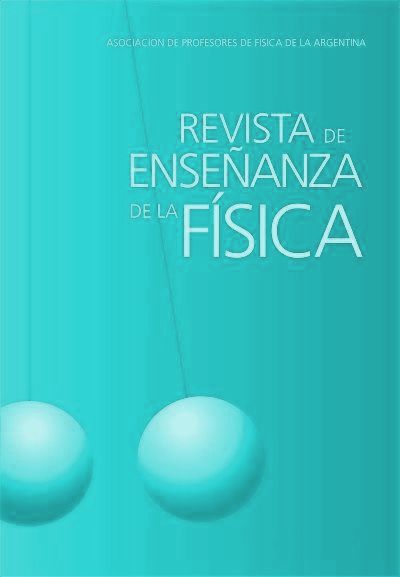Conceptual learning of 2-D motion with the video game Portal
Keywords:
Conceptual change, Physics, Portal, Mechanics, GamingAbstract
This paper examines the process of conceptual learning within the context of a college - Physics class that integrates the video game Portal. The fragmented knowledge approach is adopted for studying the learning process. Thus, the research spots on the development of the concept of velocity during a conversation between two students and a teacher, after playing levels of Portal. Progressis observed during the conceptualization of velocity in two-dimensional motion, transitioning from a scalar conception to considering it as a twodimensional vector
References
Buteler, L., Nieva, C., Velasco, J., et al. (2021). La apropiación de la enseñanza y el aprendizaje de futuros docentes durante el curso de Didáctica de la Física. Revista Eureka sobre enseñanza y divulgación de las Ciencias, 3(18). http://doi.org/10.25267/Rev_Eureka_ensen_divulg_cienc.2021.v18.i3.3601
Clark, D. B., Sengupta, P., Brady, C. E., Martinez-Garza, M. M., & Killingsworth, S. S. (2015). Disciplinary integration of digital games for science learning. International Journal of STEM Education, 2(1), 2.
Csikszentmihalyi, M. (2005). Fluir (Flow): Una psicología de la felicidad (N. López, Trad.). Barcelona, España: Kairós.
diSessa, A. A., & Wagner, J. F. (2005). What coordination has to say about transfer. Transfer of learning from a modern multi-disciplinary perspective, 121-154.
Escobar, R. y Buteler, L. (2018). Resultados de la investigación actual sobre el aprendizaje con videojuegos. Revista de Enseñanza de la Física, 30, 1; 5. https://ri.conicet.gov.ar/handle/11336/91660
Escobar, R. y Buteler, L. (2022). Videojuegos y conocimiento intuitivo: la potencialidad de Portal para aprender física. Revista electrónica de investigación en educación en ciencias, 17(2). https://doi.org/10.54343/reiec.v17i2.330
Escobar, R. (2023, agosto 2023). Gaming y videojuegos: ¿aprender ciencia jugando? La Izquierda Diario. https://www.izquierdadiario.com.ar/Gaming-y-videojuegos-aprender-ciencia-jugando
Girard, C., Ecalle, J., & Magnan, A. (2013). Serious games as new educational tools: how effective are they? A metaanalysis of recent studies. Journal of computer assisted learning, 29(3), 207-219.
Kim, Y. H., Nauright, J., &Suveatwatanakul, C. (2020). The rise of E-Sports and potential for post-COVID continued growth. Sport in Society, 23(11), 1861–1871. https://doi.org/10.1080/17430437.2020.1819695
Papastergiou, M. (2009). Digital game-based learning in high school computer science education: Impact on educational effectiveness and student motivation. Computers & education, 52(1), 1-12.
Peterson, M., White, J., Mirzaei, M. S., & Wang, Q. (2020). A review of research on the application of digital games in foreign language education. En New Technological Applications for Foreign and Second Language Learning and Teaching (pp. 69–92). IGI Global.
Sengupta, P., Krinks, K. D., & Clark, D. B. (2015). Learning to deflect: Conceptual change in physics during digital game play. Journal of the Learning Sciences, 24(4), 638–674. https://doi.org/10.1080/10508406.2015.1082912
Sitzmann, T. (2011). A meta-analytic examination of the instructional effectiveness of computer-based simulation games. Personnel Psychology, 64(2), 489–528. https://doi.org/10.1111/j.1744-6570.2011.01190.x
Velasco, J. J. (2020). Aprendizaje de conceptos en termodinámica: cómo y cuándo (Tesis doctoral). Universidad Nacional de Córdoba. https://rdu.unc.edu.ar/handle/11086/15307
Wannigamage, D., Barlow, M., Lakshika, E., & Kasmarik, K. (2020). Analysis and prediction of player population changes in digital games during the COVID-19 pandemic. En AI 2020: Advances in Artificial Intelligence (pp. 458–469). Springer International Publishing.
Downloads
Published
How to Cite
Issue
Section
License

This work is licensed under a Creative Commons Attribution-NonCommercial-NoDerivatives 4.0 International License.
Aquellos autores/as que tengan publicaciones con esta revista, aceptan los términos siguientes:Los autores/as conservarán sus derechos de copiar y redistribuir el material, bajo los términos estipulados en la Licencia de reconocimiento, no comercial, sin obras derivadas de Creative Commons que permite a terceros compartir la obra bajo las siguientes condiciones:
- Reconocimiento — Debe reconocer adecuadamente la autoría, proporcionar un enlace a la licencia e indicar si se han realizado cambios. Puede hacerlo de cualquier manera razonable, pero no de una manera que sugiera que tiene el apoyo del licenciador o lo recibe por el uso que hace.
- NoComercial — No puede utilizar el material para una finalidad comercial.
- SinObraDerivada — Si remezcla, transforma o crea a partir del material, no puede difundir el material modificado.
- Los autores/as podrán adoptar otros acuerdos de licencia no exclusiva de distribución de la versión de la obra publicada (p. ej.: depositarla en un archivo telemático institucional o publicarla en un volumen monográfico) siempre que se indique la publicación inicial en esta revista.
- Se permite y recomienda a los autores/as difundir su obra a través de Internet (p. ej.: en archivos telemáticos institucionales o en su página web) antes y durante el proceso de envío, lo cual puede producir intercambios interesantes y aumentar las citas de la obra publicada. (Véase El efecto del acceso abierto).














